I was born in it, molded by it
Following up The Dark Knight is no easy task, especially when, by most accounts, Christopher Nolan had to be talked into making a third Batman movie. The Dark Knight Rises leans into the excesses of the first two movies and their more nonsensical characteristics, but still manages to come out as a pretty satisfying whole. It’s the worst of the trilogy, but also still a great film, or at least close to it.
The Dark Knight’s ending saw Batman taking the fall for Harvey Dent’s descent to two-faced villainy so that Dent could remain an icon of virtuous justice for Gotham. The symbolic Dent would become the city’s cure for its decay, a rallying point for institutions and voters, while Batman could become the symbol of the dark impulse of violence of the common people, even though the truth was quite the opposite.
It turns out that this plan has worked, at least on the surface. We pick up several years in the future where Gotham is at the tail end of a golden age. Crime is down, but the police force is bigger and more authoritarian than ever. The old vanguards, including Police Chief Gordon (Gary Oldman), are on their way out. Bruce Wayne (Christian Bale) has retired the caped crusader and become a decrepit hermit who needs a cane to walk as a result of the toll being Batman took on his body.
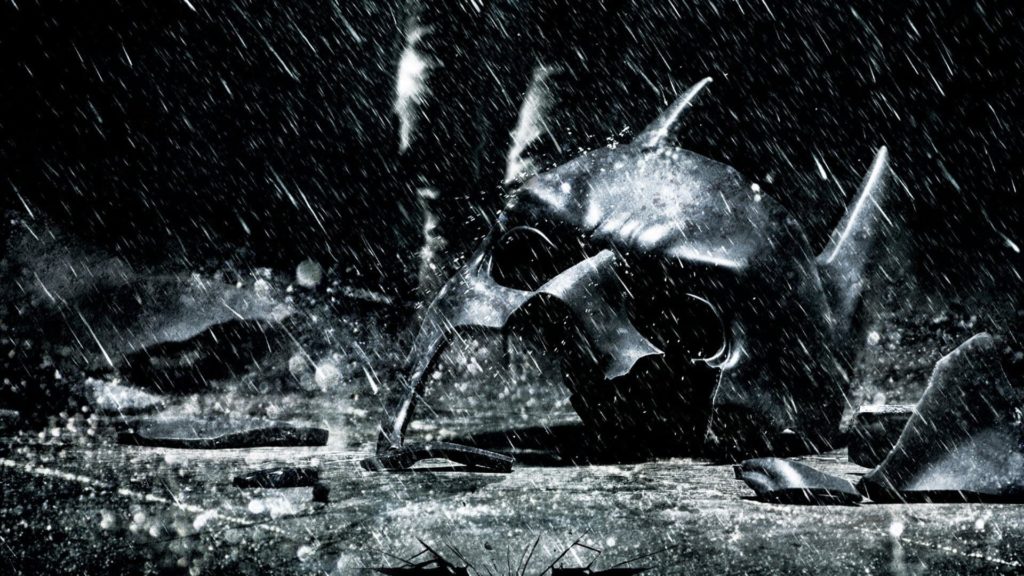
Chaos is just around the corner, though. Bane (Tom Hardy), a former member of The League of Shadows, which was the driving antagonistic force of Batman Begins, seeks to upturn the status quo and empower the chaotic whims of the labor class. Meanwhile, Batman is pulled back into the game following a robbery by Selina Kyle aka Catwoman (Anne Hathaway), and he’s helped by a rookie cop who is definitely not Robin (Joseph Gordon-Levitt).
The plot is a lot of cheese, barely coherent, instead a servant to themes and images and moments. The story is mainly driven from two big ideas mashed together: One is the breaking of Bruce Wayne by Bane so that Batman may emerge from a pit, reborn. The second is the bedlam of the masses: Gotham’s golden age turns into the French Revolution when Bane upends the city’s power structures.
There are some recurring motifs that tie the film together — for example, three characters independently deduce the identity of Batman to very different ends — but there’s still not a clear enough story with proper structure to make The Dark Knight Rises flow as a compelling whole. The narrative is sloppy and full of plot holes and barely explained threads that come and go. The story is scattered enough that almost seems an intentional flaw, like Nolan is making an homage to hardboiled detective stories in which the the chaotic motion and unknowability of the plot is more satisfying than any internal logic.
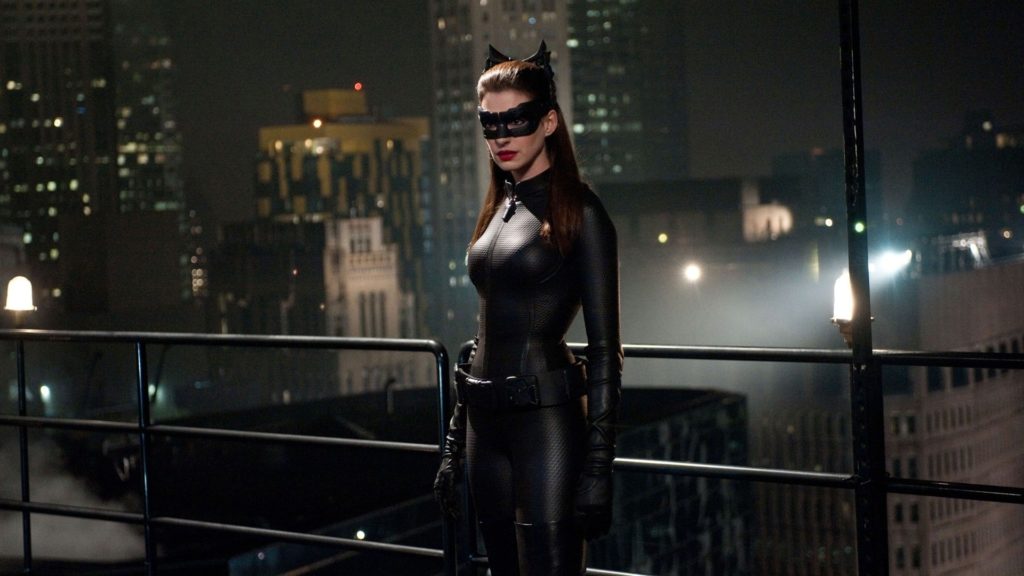
This is the most political of the Nolan Batman movies. There’s frankly no avoiding it, as much as I wish I could. Unlike The Dark Knight and Batman Begins, which both used their political stories as lenses on the mythic properties of the Caped Crusader, this is explicitly about “the people.” Specifically, it’s about society’s downfall due to extremism. Nolan’s position seems to be a right-leaning centrism tinted with libertarianism, though it’s messy. He rejects populism as bloodthirty and depraved, but also has no use for fascistic police or pork barrel. Righteousness comes at the hand of a small, empowered few.
You can read “rejection of extreme political populists” and “trust the mainstream institutional heroes” as either right- or left-wing. Using politics a decade later, it’s not too much of a stretch see it as either: perhaps anti-Black Lives Matter, or perhaps anti-Jan 6 (and it was similarly easy to see it as an anti-Tea Party piece in 2012). But I think most of the coding here leans anti-left. Bane — the villain — talks all about bringing communal power to the “people” and away from the corporations and rotted institutions in an exaggerated Marxist sort of way. Regardless your leaning, it’s an exhaustingly cynical and anti-humanitarian political view, and I don’t like it.
Back on track to the movie itself… The action here is par for the course for the trilogy. That is to say: it is good, but not consistently great. There is once again a brilliant vehicle chase scene, which is has been consistent of all of Nolan’s Batman films. The hand-to-hand action is weaker, with the obvious highlight being Bane and Batman’s showdown in the sewer. It’s a slow, methodical fight — not a barn-burner like the vehicle chases are, but effective in conveying the sense of physical devastation.
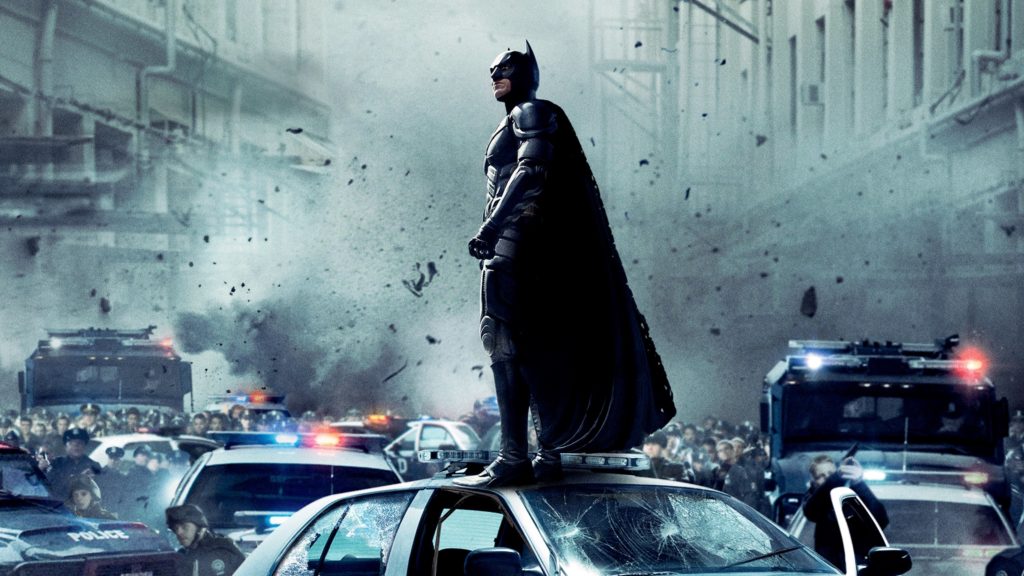
Another of the series’ bugaboos — and, honestly, Nolan’s bugaboos — is having a hard time writing women. Hathaway turns on the charisma, but Selina Kyle is drastically underwritten; meanwhile Marion Cotillard’s Miranda Tate makes no sense and plays on some bad stereotypes about duplicitous women; there’s just not enough meat for Cotillard to turn it into something interesting.
On the positive side, I am strongly pro-Bane. Hardy’s performance is terrific. The sound mixing of his modulated voice is a bit disorienting, at least on the version I watched, like it was piped directly into my ears instead of the space he was speaking. But the voice itself and Hardy’s swaggering menace are incredible. It’s very comic book-y but also genuinely cinematic. He’s no Ledger’s Joker, but I think he’s closer than most people admit.
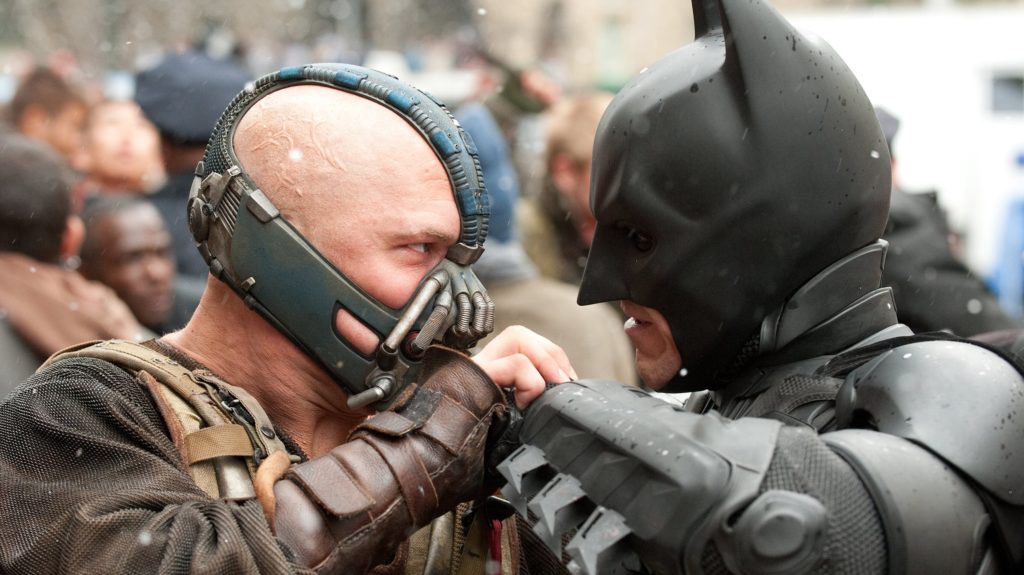
I also continue to love the score of this series. It remains astonishing how much turbulent drama that Hans Zimmer is able to wring again and again from the same simple two-chord progression.
What ultimately leaves me feeling good about The Dark Knight Rises is that it has an outstanding final few minutes (the silly Joseph Gordon-Levitt name joke notwithstanding). It ties the trilogy together with an image of lingering hope that conveys belief in the transformative power of self-sacrifice, a much more optimistic theme than the rest of the movie, but still earned. The final few shots of Alfred’s vision, ambiguously real or imagined, are a perfect conclusion for Wayne’s arc, too. He found peace or he died trying. Either way, Batman won.
- Review Series: Christopher Nolan
Is It Good?
Very Good (6/8)
Dan is the founder and head critic of The Goods. Follow Dan on Letterboxd. Join the Discord for updates and discussion.

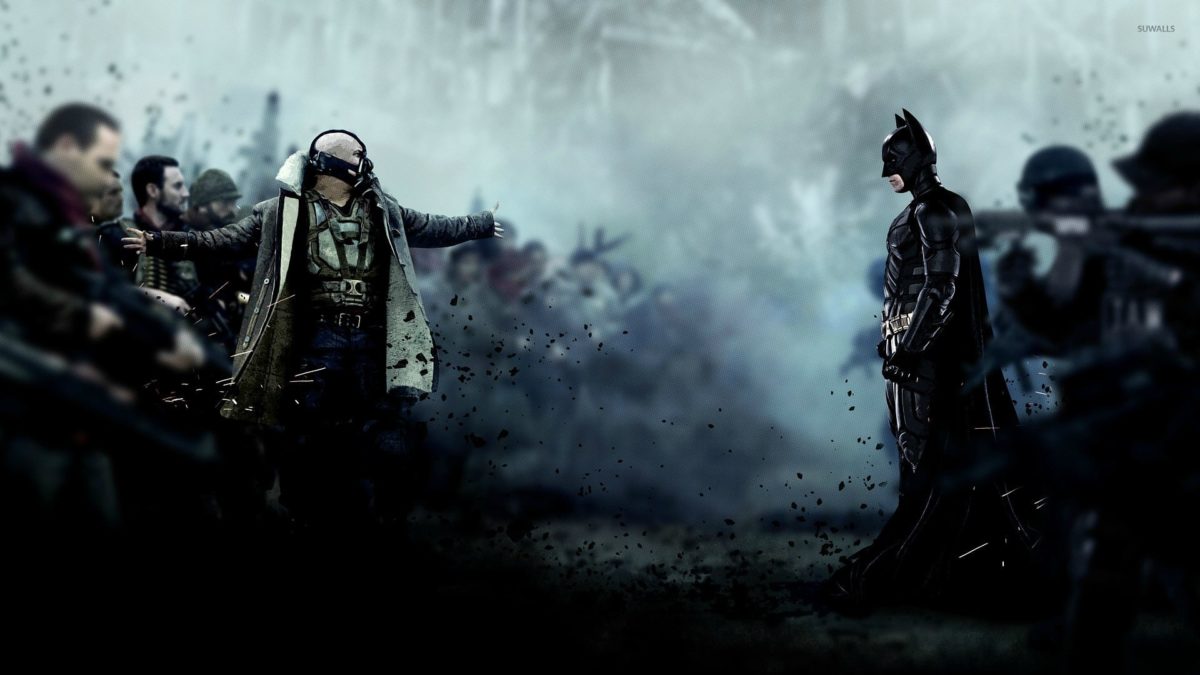
One reply on “The Dark Knight Rises (2012)”
It’s my second favorite of The Dark Knight Trilogy, still without liking it very much, but I’m one of the few who kind of despise Batman Begins. DKR has more to like, I think: any scene with Hardy’s Bane, the overall concept of Gotham fallen into anarchy if not how it got there (honestly, it feels political but it can’t be given that it’s a James Bond plot stretched out to a year–there are simply no analogies to make except to, like, Lord of the Flies or something), the bits openly riffing on Knightfall, and, oh, Cillian Murphy’s Scarecrow is always a pleasure, kinda wish he’d gotten a real movie of his own, but maybe that would’ve ruined it.
But it’s also too long, too up its own butt, and too slapdash in the themes it has (feels like there were a lot of movies around this time, though I’m only remembering Skyfall, where the first act had an idea to render its icon as aging and physically diminished that neither the second nor third acts bothered to remember, and it was annoying as hell in both, more a simulation of a theme than a theme itself). I also find it hard to be super stoked about Batman movies about nuclear bombs (or whatever it was). It’s not nearly as dumb as the final season of Gotham, however, which doesn’t even have a nuke. Man, that show got bad.